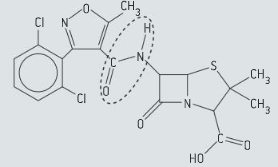Sergey Bylikin, Gary Horner and, Brian Murphy Solutions for Chapter: Medicinal Chemistry, Exercise 2: Questions
Sergey Bylikin Chemistry Solutions for Exercise - Sergey Bylikin, Gary Horner and, Brian Murphy Solutions for Chapter: Medicinal Chemistry, Exercise 2: Questions
Attempt the practice questions on Chapter 25: Medicinal Chemistry, Exercise 2: Questions with hints and solutions to strengthen your understanding. Oxford IB Diploma Programme Chemistry Course Companion solutions are prepared by Experienced Embibe Experts.
Questions from Sergey Bylikin, Gary Horner and, Brian Murphy Solutions for Chapter: Medicinal Chemistry, Exercise 2: Questions with Hints & Solutions
The discovery of penicillin by Alexander Fleming in is often given as an example of serendipity in science. Describe the chance event that led to Alexander Fleming's discovery of penicillin.
Outline the work of Florey and Chain in developing penicillin.
Describe what happens to bacteria when they come into contact with penicillin.
The structure of a particular type of penicillin called dicloxacillin is shown in figure. State the name of the functional group in dicloxacillin, circled below.

Identify the -lactam ring by drawing a circle around it and explain why the -lactam ring is so important in the mechanism of the action of penicillin.
Comment on the fact that many bacteria are now resistant to penicillins.
The efficiency of certain drugs is strongly dependent on the frequency and regularity of their administration. Explain the importance of patient compliance when the patient is treated with antibacterials.
"In the field of observation, chance favours the prepared mind"- Louis Pasteur. Using the discovery of penicillin as an example, discuss the influence of an open-minded attitude on our perceptions.
